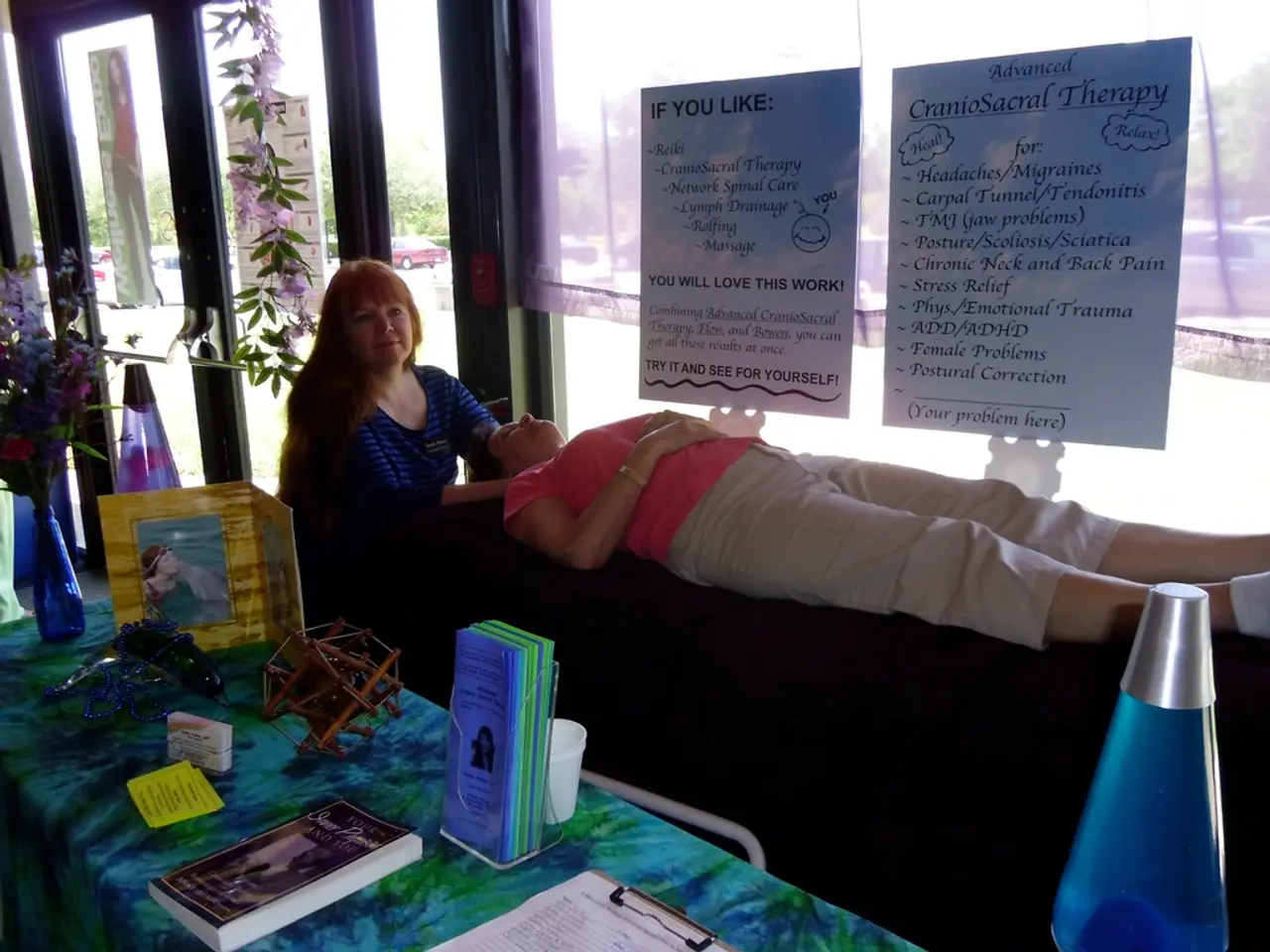Mastering Social Anxiety through Personal Skill Development Techniques
Social anxiety, a common yet debilitating condition, can interfere with daily life, affecting friendships, romantic relationships, and work. But there's hope. A combination of cognitive, behavioural, mindfulness, and self-care techniques, backed by psychological research, can help individuals manage this condition effectively.
Cognitive-Behavioural Techniques, such as Cognitive Restructuring and Exposure Therapy, are science-backed strategies for managing social anxiety. Cognitive Restructuring involves identifying and challenging irrational or negative thoughts that fuel social anxiety, reducing fear and worry. Exposure Therapy, on the other hand, involves gradually and systematically facing feared social situations to diminish anxiety over time.
Mindfulness and relaxation techniques, like Mindfulness Meditation, Progressive Muscle Relaxation (PMR), and Deep Breathing Exercises, can help manage social anxiety by promoting present-moment awareness, reducing physical tension, and calming the nervous system.
Psychological self-talk, such as Third-Person Self-Talk, can create psychological distance from anxiety and encourage self-kindness. Setting realistic goals and engaging in regular self-care practices, including exercise, adequate nutrition, relaxation, meditation, and nurturing social connections, support overall well-being and resilience against anxiety.
Additional practical techniques, like Counting Exercises and Journaling, can help individuals confront fears, calm their minds, and build social confidence. Counting slowly when anxiety rises can distract attention from anxious thoughts, while journaling can help recognise anxiety patterns, process emotions, and develop coping strategies.
Online therapy platforms like BetterHelp offer professional guidance from the comfort of home, while connecting with fellow social anxiety sufferers in support groups can be therapeutic and enriching. Medication, such as SSRIs and benzodiazepines, can be used to manage severe symptoms of social anxiety, ideally in conjunction with therapy.
Remember, the journey of managing social anxiety is ongoing, but with determination and the use of these strategies, its impact can be lessened. Regular exercise, healthy eating, and maintaining a balanced diet rich in Omega-3, magnesium, and B vitamins can further support this journey.
Social anxiety disorder, also known as social phobia, affects approximately 12.1% of people in the U.S. AI-powered tools can also help improve mental health, habits, and happiness, with 90% of users reporting positive changes in just two weeks.
With these strategies in mind, you are now better equipped to manage social anxiety and embrace a more confident, anxiety-free life.
- Cognitive-Behavioural Techniques, such as Cognitive Restructuring and Exposure Therapy, are scientifically proven strategies used to manage social anxiety by challenging irrational thoughts and facing feared social situations.
- Mindfulness and relaxation techniques, like Mindfulness Meditation, Progressive Muscle Relaxation (PMR), and Deep Breathing Exercises, aid in managing social anxiety by promoting present-moment awareness, reducing physical tension, and calming the nervous system.
- Apart from these techniques, Psychological self-talk, Third-Person Self-Talk, and engaging in regular self-care practices (exercise, adequate nutrition, relaxation, meditation, and nurturing social connections) enhance overall well-being and resilience against anxiety.
- In addition to these strategies, practical techniques like Counting Exercises and Journaling can help confront fears, recognize anxiety patterns, and build social confidence, while online therapy platforms like BetterHelp can provide professional guidance from home.




